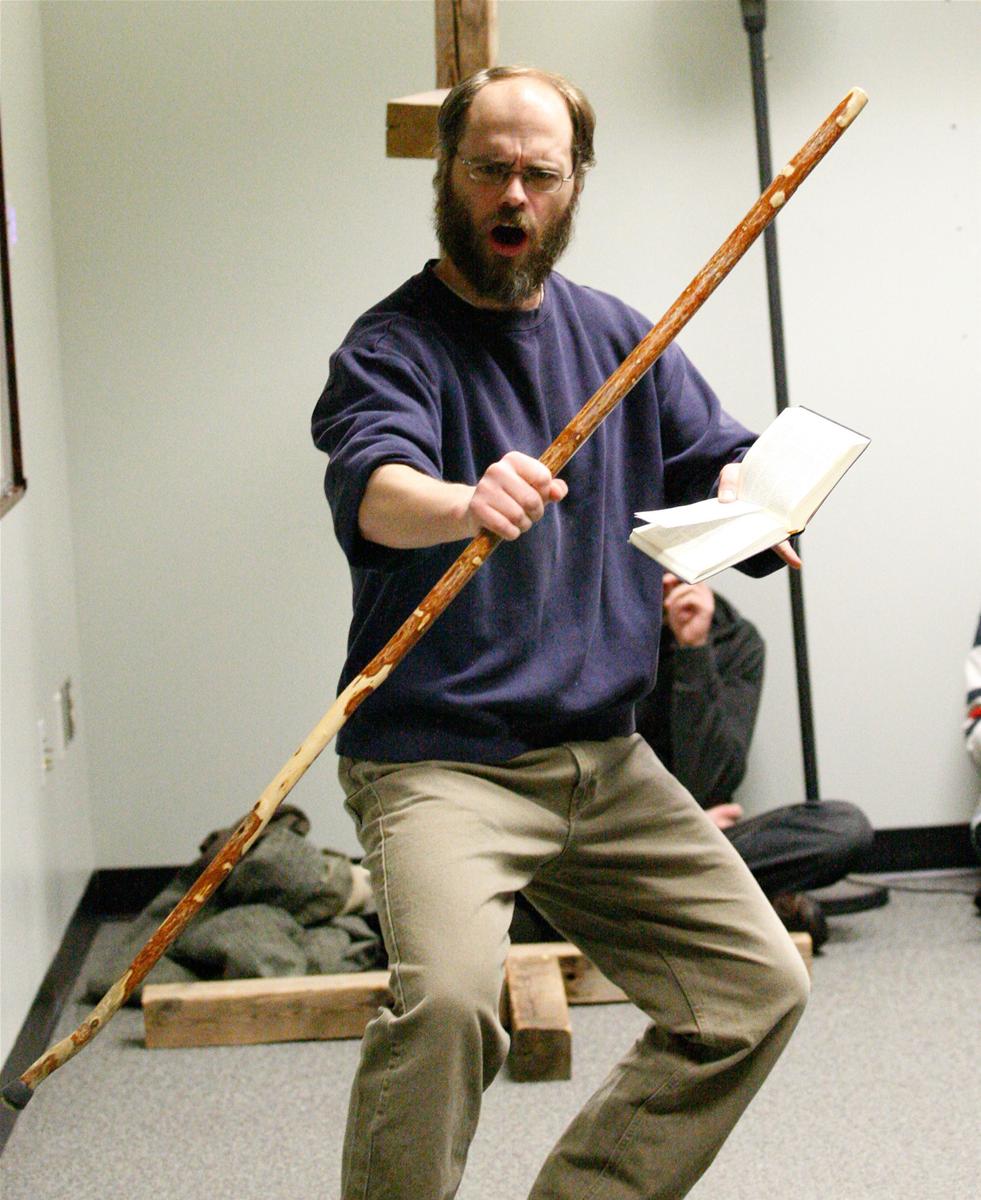Ortlund finds new life in the Old Testament

Eric Ortlund admits he sometimes loses control of his seminary classes–and he wouldn’t have it any other way.
“It happened again today in Hebrew exegesis,” he said. “We were reading the second chapter of Joel–which is one of the weirder chapters in the Old Testament–and it happened again. I didn’t even plan it or prepare it. I don’t know how to talk about it without sounding kind of mystical; except that the Word speaks and becomes present tense and what it is talking about on the page becomes real among us in the classroom as believers. If it weren’t for that I would have given up a long time ago.”
Briercrest’s assistant professor of Old Testament went on to explain how the Joel 2 passage came alive during his class.
“It says, ‘Return to the Lord with all your heart,’” he recited. “That means you can return to the Lord without doing it with your whole heart! You can do it and kind of go through the motions. So we talked about what it means to return to the Lord with your whole heart and how there are depths within us that we’re not even fully aware of. One of the (students) said, ‘Well, that’s discouraging’ and I said, ‘Yeah!’”
These are the kind of classroom moments that Ortlund relishes.
“I think I want students to be discouraged and impoverished and stripped of their illusions,” he admitted. “But I don’t want to leave them there.”
The Old Testament professor understands firsthand how valuable this sort of disillusionment can be.
“I was a philosophy major in college and sort of rationalistic,” he said. “I was interested in coming up with the comprehensive idea of everything that would explain everything. I didn’t realize it at the time, but I got very frustrated with philosophy because I went into it with expectations it couldn’t meet.”
Unsure of what to do after graduating college, Ortlund enrolled in seminary at Trinity Evangelical Divinity School near Chicago, Illinois. As he began to study the Old Testament, he felt confronted by what he read.
“The weird thing that happened was I started out trying to read the Old Testament and the Old Testament started reading me,” he exclaimed. “It really is living and active. It exposed me in a way that philosophy never could.”
The first chapters of Genesis were especially powerful to the young seminary student.
“I find Genesis 2 -3 to be such an arresting, sober portrayal of what’s wrong with me,” he admitted. “Everything after that is God in this sort of progressively, repeated intense way meeting human beings who try to play God for themselves and it never works and they die inside. The Old Testament is God meeting those human beings with His own life and light and holiness.”
As Ortlund delved into Hebrew he was fascinated because it was so different.
“I was taking Hebrew and it was so weird!” he said emphatically. “It was like travelling to a different country and everyone is looking very Arab and dark-skinned and riding on camels and wearing turbans. They’re all speaking this weird language and doing these weird things. Things seem to matter to them that I can’t figure out why they matter–these weird rituals. But I found the more I just sort of hung around there, the more it made sense.”
The absolute foreignness of Hebrew somehow addressed some of the restless places inside of Ortlund.
“The two things I’ve always known my whole life are that there’s something deeply wrong with me and the whole world and that there was something more than the world,” he explained. “I actually do feel really comfortable when I’m out of place and not sure what I’m doing. (There’s) that desire for the other–for what is different from me.”
Ortlund, who is an American, has had lots of experience being the person living in a different world. He did his doctoral studies in Scotland at New College in The University of Edinburgh. In 2006, Ortlund and his family moved to Caronport, Sask. where he became the assistant professor of Old Testament at Briercrest Seminary.
The professor’s enthusiasm for Briercrest is contagious.
“As a relative newcomer to Briercrest, I see God’s blessing on this place in all kinds of ways,” he said. “Briercrest is awesome. I wish I could have come here to seminary.”
